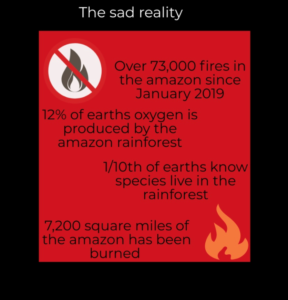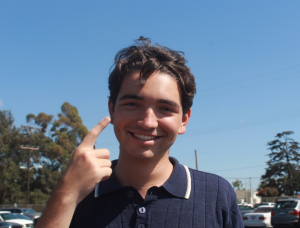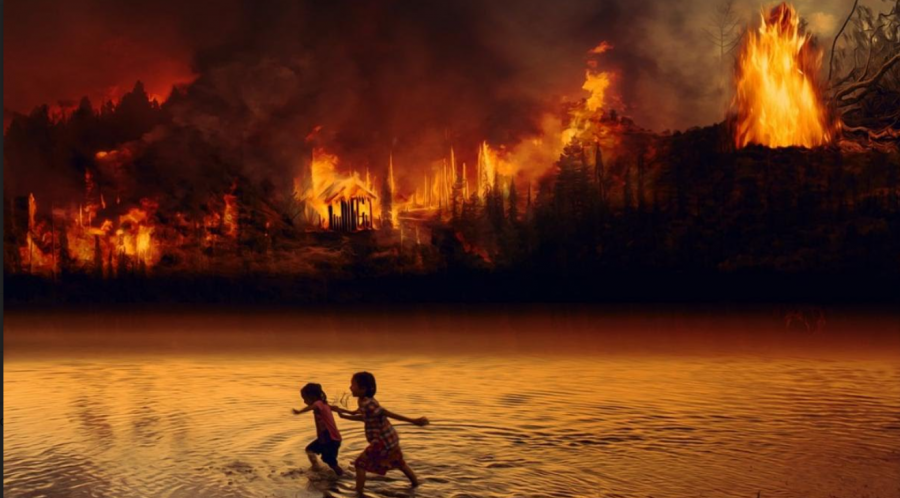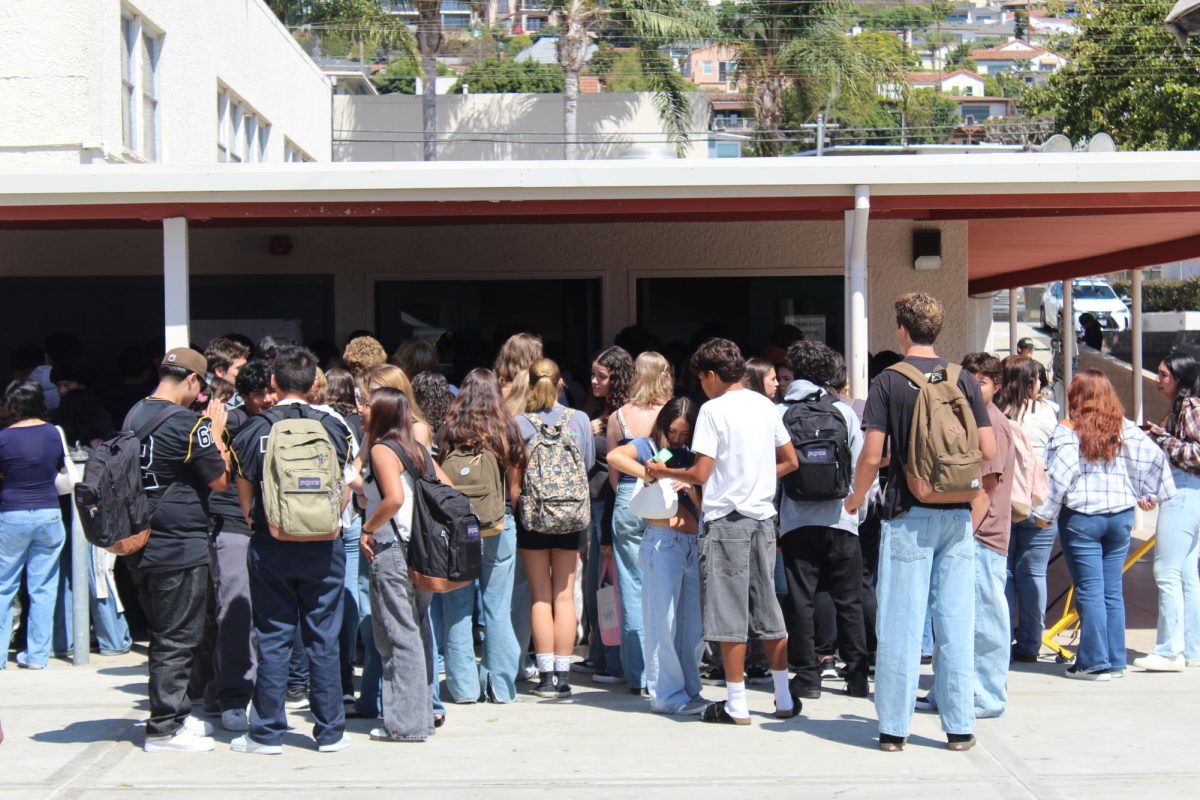The Amazon is the largest rainforest on Earth, ranging an astounding 2.124 million mi². It is home to ten percent of the world’s known species as well as 30 million indigenous people, and serves as a carbon sink, absorbing 2 billion tons of carbon dioxide each year.
The issue in the Amazon was not that it is on fire, but the fact that there has been a tremendous increase in the number of fires that have occurred this year compared to years before. According to the Global Forest Watch, between January and August of 2019, there have been 156,00 fires, which is the highest number of fires since 2010.

Causes for the spike in fires can be attributed to human causes: agriculture, mining, timber harvesting, cattle ranchers, and soybean growers have led to an increase in deforestation and have in turn cascaded a blanket of flames across the Amazon.
The Washington Post states, “The country has lost more than 1,330 square miles of forest cover to development since January, when President Jair Bolsonaro took office.”
Science teacher Jared McEntyre, shares his views on the recent issue saying, “Sometimes students can get hopeless,” feeling as if “they can’t do anything about it.” However, McEntyre adds, “a lot of what’s happening in the Amazon has to do with deforestation for some sort of a food crop for cattle, or for palm oil.”
Therefore, there is hope for students and people all over to make a difference, McEntyre continues by addressing that, “As Americans, our consumption patterns, to a large degree, influence what happens all around the world, including our global climate and loss of biodiversity.” In that sense, “people think that they don’t have any power, but they really have all the power.” He concludes by expressing, “If students would eat less beef, or no beef, then that would hugely impact the Amazon.”

Senior India Hill shares many views with McEntyre, she shares her knowledge by stating, “Animal agriculture in general is a large contributor to climate change.” Hill believes “the best way to take action in this is to limit consumption of meat.” Hill acknowledges, “[She’s] not saying everyone needs to go vegan, but limiting meat consumption is definitely a great way for individuals to make a difference when it comes to climate change and the fires in the Amazon.”
Bera, the son of the informal leader of Georgia, has decided to donate 1.1 million dollars to help the devastating fires in the Amazon. Bera stated in his Instagram post, “Fire is destroying the lungs of our planet, our life and the future of our children. This is a call to action.” Bera also later stated, “I urge you all to participate and act. Any contribution, regardless of quantity, is significant and important. Together we can make a change.”









